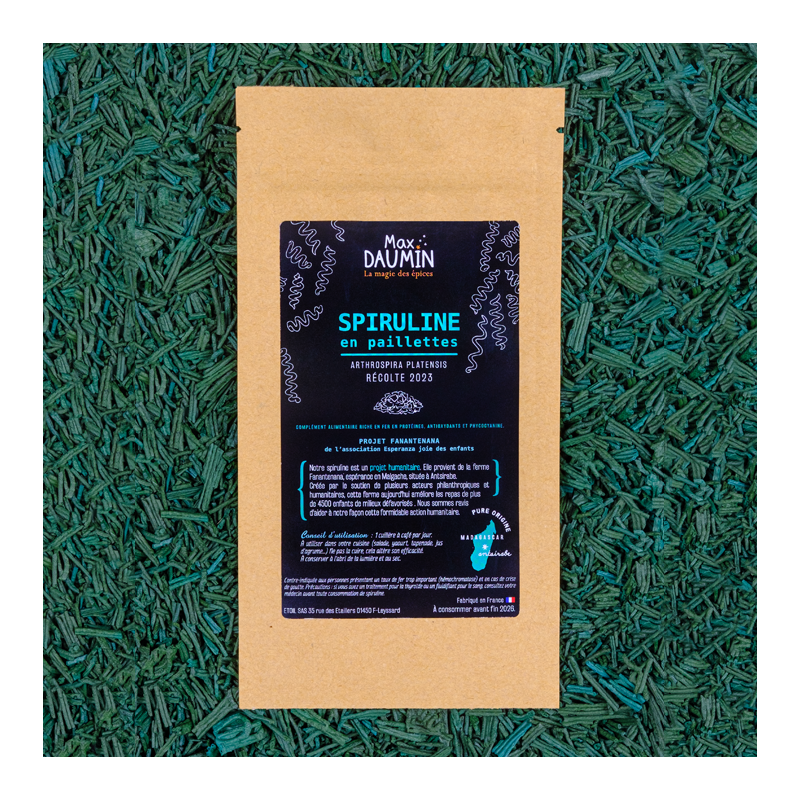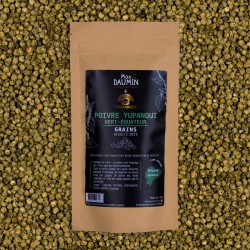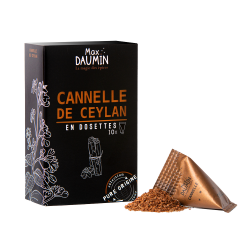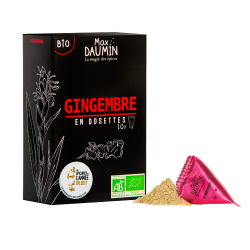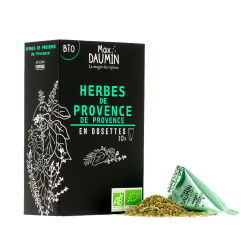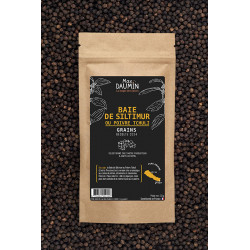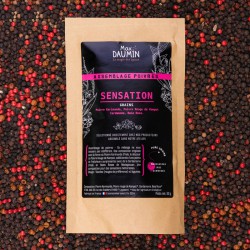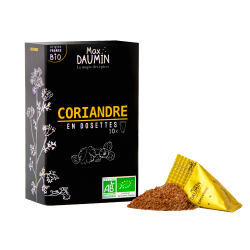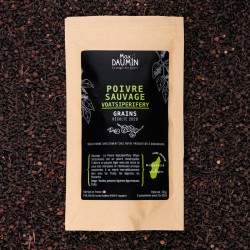Spirulina
Our spirulina is a humanitarian project. It comes from the Fantantenana farm, Esperance in Malagasy, located in Antsirabe. Created with the support of several philanthropic and humanitarian actors, this farm today provides more than 4000 meals a day to children from disadvantaged backgrounds. We are delighted to help in our own way this wonderful humanitarian action carried out by the Esperanza Joie des Enfants association.
Food supplement rich in iron, proteins, antioxidants and phycocyanin.
-
Net weight : 100g
-
Usage : 1 teaspoon per day. Store away from light and in a dry place. To be used in your cooking (salad, yogurt, tapenade, citrus juice, etc.) Do not cook it, this affects its effectiveness.

History
Plant & perfume
Spirulina (Arthrospira platensis) is one of the oldest life that can be found on earth. It dates back more than three billion years!
Spirulina is a cyanobacterium, so it is a bacterium that is able to carry out photosynthesis. Chlorophyll thus explains the green color of spirulina.
This bacteria grows naturally in alkaline water, in a warm climate and feeds on nutrients present in its environment. It is neither a plant nor an algae.
Dried spirulina contains 5% water, 24% carbohydrates, 8% fat and approximately 60% (51-71%) protein.
A quantity of 100 g of spirulina provides 290 kilocalories (1,200 kJ). It is a rich source of many essential nutrients, particularly protein, B vitamins (thiamine, riboflavin and niacin, providing 207%, 306% and 85% of the daily requirement respectively) and dietary minerals, such as iron (219 % of the daily requirement) and manganese (90%).


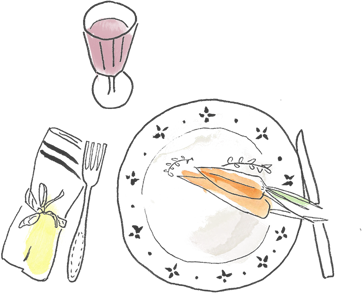
Benefits
Cooking and Virtue
Qualified as “Best food for humanity in the 21st century” for the World Health Organization (WHO), “ideal and most complete food of tomorrow” for UNESCO Spirulina contains several substances beneficial for our health.
Spirulina is used to combat food security and malnutrition. We are even considering using it as food support in long-term space flights or missions to Mars! Its advantage for food security is that it requires less land and water than livestock or vegetables to produce protein and energy
When it comes to cooking, it must be used raw, without cooking. Cooking alters the desired properties. It is perfect for sprinkling on vegetables or simply in salads.
In terms of well-being, it is commonly accepted to take 2 to 3g of spirulina per day. (the equivalent of a teaspoon)

Origins
A long journey
The Esperanza Joie des Enfants association’s primary aim is to feed Malagasy children. She is involved in the local production of spirulina in order to provide Malagasy children with the nutritional supplements they need.
With the technical help of the French team of a Swiss scientific foundation, Antenna, the mobilization of several volunteers from Esperanza, as well as the remarkable contribution of French agronomy students who intervene on site every year, we have since constituted France the project team which led the development of what is now the second largest spirulina production center operating in Madagascar.
To find out more https://www.esperanzajoiedesenfants.org/projet-de-production-locale-de-spiruline.php


Customers who bought this product also bought:

